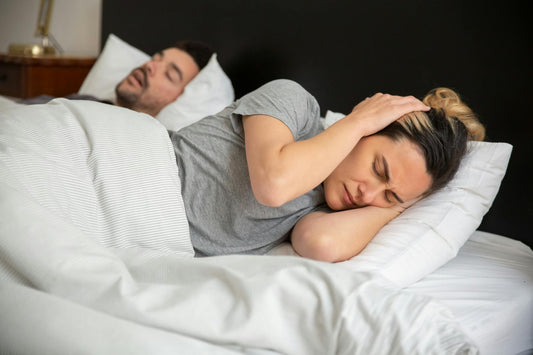Sleep Health

Is Snoring a Sign of a Sleep Disorder?
Occasional snoring is sometimes a common sleep activity, but persistent or strong snoring can indicate the presence of a sleep condition or disorder.
Is Snoring a Sign of a Sleep Disorder?
Occasional snoring is sometimes a common sleep activity, but persistent or strong snoring can indicate the presence of a sleep condition or disorder.

How Can Seniors Improve the Quality of their Sl...
Seniors can establish a consistent bedtime routine, watch their diet, get daily exercise, limit stimulant use, and optimize their sleep environment to protect nightly rest as they age.
How Can Seniors Improve the Quality of their Sl...
Seniors can establish a consistent bedtime routine, watch their diet, get daily exercise, limit stimulant use, and optimize their sleep environment to protect nightly rest as they age.

What Time Should I Get to Bed?
Most Americans go to bed between 10:00 and 11:00 pm each night, but your exact bedtime should depend on your schedule, lifestyle factors, and bedtime routine.
What Time Should I Get to Bed?
Most Americans go to bed between 10:00 and 11:00 pm each night, but your exact bedtime should depend on your schedule, lifestyle factors, and bedtime routine.

Is it Normal to Talk in Your Sleep?
Talking in your sleep is typically a harmless activity. However, it might indicate a deeper sleep condition when sleep talking is a regular habit, or when it occurs alongside other...
Is it Normal to Talk in Your Sleep?
Talking in your sleep is typically a harmless activity. However, it might indicate a deeper sleep condition when sleep talking is a regular habit, or when it occurs alongside other...

What's the Fastest Way to Cope with Jet Lag
Gradually adjust your sleep schedule before your trip, stay well-hydrated, control light exposure, and use high-quality sleep materials to properly cope with jet lag.
What's the Fastest Way to Cope with Jet Lag
Gradually adjust your sleep schedule before your trip, stay well-hydrated, control light exposure, and use high-quality sleep materials to properly cope with jet lag.

Is it Safe to Sleep in Bed with My Pet?
Consider your sleep hygiene, allergies, the amount of space in your bed, and the preferences of a sleep partner before deciding to sleep in bed with a pet.
Is it Safe to Sleep in Bed with My Pet?
Consider your sleep hygiene, allergies, the amount of space in your bed, and the preferences of a sleep partner before deciding to sleep in bed with a pet.